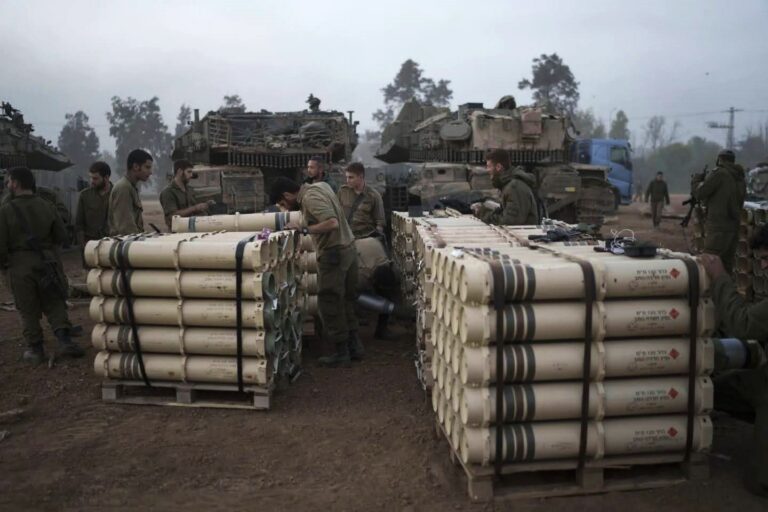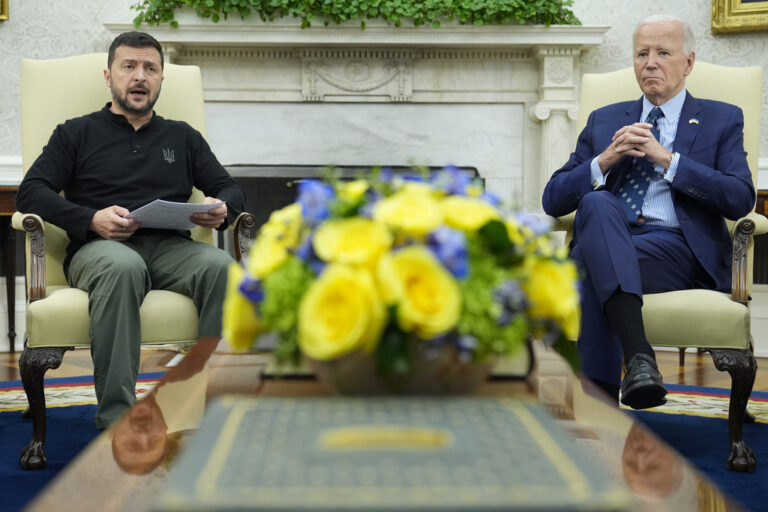 U.N. chemical investigators on Monday confirmed the use of sarin gas in an August 21 poison gas attack in the suburbs of Damascus, noting that weather conditions at the time ensured the maximum number of people were killed.
U.N. chemical investigators on Monday confirmed the use of sarin gas in an August 21 poison gas attack in the suburbs of Damascus, noting that weather conditions at the time ensured the maximum number of people were killed.
As expected, the report does not say who launched the attack in the rebel-held Damascus suburb of Ghouta.
“On the basis of the evidence obtained during the investigation of the Ghouta incident, the conclusion is that chemical weapons have been used in the ongoing conflict between the parties in the Syrian Arab Republic, also against civilians, including children, on a relatively large scale,” said the report by chief U.N. investigator Ake Sellstrom of Sweden.
“In particular, the environmental, chemical and medical samples we have collected provide clear and convincing evidence that surface-to-surface rockets containing the nerve agent sarin were used,” it said.
The report said the weather conditions on August 21 ensured that as many people as possible were injured or killed. Temperatures were falling between 2 a.m. and 5 a.m., it said, which meant that air was not moving upwards but downwards toward the ground.
“Chemical weapons use in such meteorological conditions maximizes their potential impact as the heavy gas can stay close to the ground and penetrate into lower levels of buildings and constructions where many people were seeking shelter,” it said.
The results of Sellstrom’s investigation are not surprising. Several weeks ago U.S. Secretary of State John Kerry announced that sarin had been used in the chemical attack on the Ghouta region. The United States said 1,400 people were killed, including more than 400 children.
“The United Nations Mission has now confirmed, unequivocally and objectively, that chemical weapons have been used in Syria,” U.N. Secretary-General Ban Ki-moon told the Security Council.
Ban said on Friday that Syrian President Bashar al-Assad “has committed many crimes against humanity,” though he did not say whether it was Assad’s forces or rebels who were behind the Ghouta attack. He added that Assad would be held to account for his crimes.
RESPONSIBILITY UNCLEAR
Syria and Russia have blamed the August 21 attack on the rebels. The rebels, the United States and other Western powers blame forces loyal to Assad for the Ghouta attack.
It is not immediately clear whether any of the details in the report suggested culpability. Sellstrom’s mandate is limited to investigating the facts, not assigning blame.
French Foreign Minister Laurent Fabius, however, said the U.N. report showed there was “no doubt” the Assad government was responsible for the chemical attack.
Ban told the council on Monday that 85 percent of the blood samples taken by investigators tested positive for sarin, while almost all the biomedical samples taken tested positive for exposure to sarin.
“Survivors reported that following an attack with shelling, they quickly experienced a range of symptoms, including shortness of breath, disorientation, eye irritation, blurred vision, nausea, vomiting and general weakness,” Ban said.
“Many eventually lost consciousness,” he added. “First responders described seeing a large number of individuals lying on the ground, many of them dead or unconscious.”
The U.N. confirmation of the use of sarin gas on August 21 comes as France, Britain and the United States agreed at three-way Paris talks on Monday to seek a “strong and robust” U.N. resolution that sets precise and binding deadlines on removal of chemical weapons.
Those talks followed a weekend deal on Syria’s chemical weapons reached by the United States and Russia that could avert U.S. military action.
Ban urged the Security Council consider ways to ensure enforcement and compliance with the U.S.-Russia plan. “I agree there should be consequences for non-compliance. Any use of chemical weapons by anyone, anywhere, is a crime,” he said.
Some Western diplomats have said on condition of anonymity that information about the type of weapons and other details Sellstrom might possess could hint at government responsibility for the attack. But rebels have seized all kinds of weapons from military depots across the country in the 2 1/2-year civil war.
The United Nations says more than 100,000 people have died in Syria since March 2011.
(Reuters)










